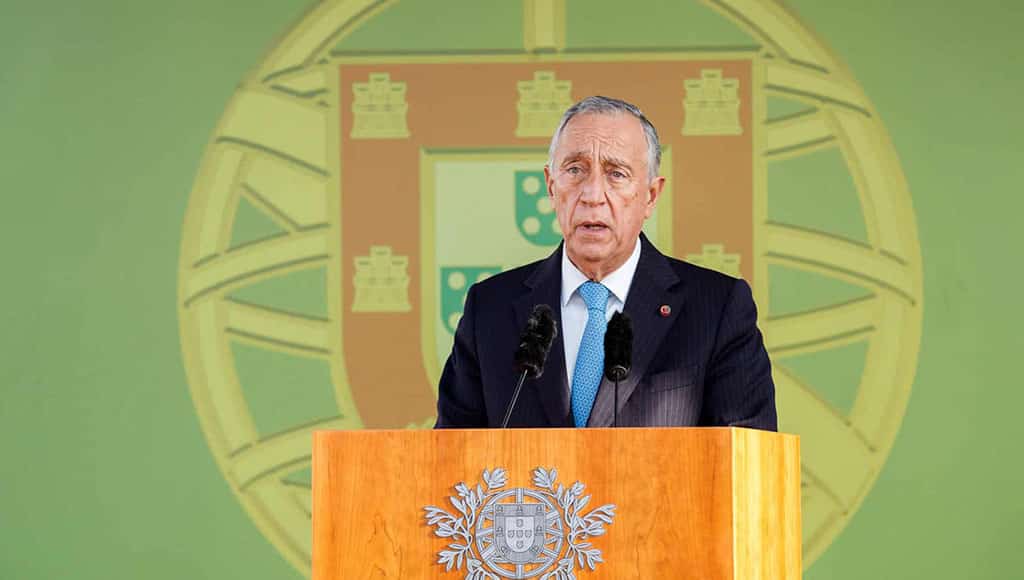President Marcelo has high hopes for 2024
Portugal’s president, Marcelo Rebelo de Sousa, has said that he hopes that in 2024 the country will try to do “more or better” in terms of economic growth, implementation of European funds, justice and social cohesion, while maintaining a balanced public sector budget and low unemployment.
The head of state was speaking at the Ajuda National Palace in Lisbon on Wednesday night, at a meeting followed by dinner in honour of the heads of Portugal’s diplomatic missions abroad, as part of the Diplomatic Seminar hosted in the country.
In his speech, the text of which was later published on his office’s YouTube channel, the president referred to the parliamentary elections announced for March 10, arguing that it is necessary to “follow up on what should not and cannot be sacrificed, improving what needs to be revised.”
Further on, Marcelo listed what he said he believes “must continue” following the parliamentary elections: “budgetary balance, low unemployment, export diversification, foreign investment, energy and digital transition.”
He then went on to list what “we need to continue trying to do more or better” in the next parliamentary term: “economic growth, acceleration of the Recovery and Resilience Plan (PRR) and attention to Portugal 2030, qualifications, science, technology, public administration and justice. And, in particular, social, personal, functional and territorial cohesion.
“The Portuguese will choose in 2024 which paths they want to take and with what political support. In other words, they will say which architecture they want to build in order to maintain, to underpin the fundamental guarantee of an approved State Budget, of a stabilised economic and social situation,” said Marcelo.
The president pointed out that in 2024 there will also be the European Parliament elections and the US presidential elections and predicted that “it will be a remarkable year in many ways, not least because in the global world the challenges of some are to a large extent the challenges of all.”
At the end of his speech, which lasted around 13 minutes, the head of state praised Portugal’s longevity, at almost 900 years: “Several times we foresaw the end of our path, of our identity, of our existence, and we resisted.”
In the first part of his speech, the president pointed to continuity in foreign policy as “one of the country’s strengths” and highlighted the presence of Portuguese nationals in positions of “international prominence” such as the secretary-general of the United Nations, António Guterres – a former prime minister of Portugal.
In Marcelo’s opinion, Guterres has acted with “serene courage” in the face of the most varied crises and situations in various parts of the world “in times of war, drama, tragedy and emotion.”
With regard to the future, he said: “It is with joy that we always look forward to yet another example of service to many more than ourselves from someone who has served the Portuguese people for so long and so proficiently.”
Referring to the eight years he spent as president with António Costa as prime minister and the challenges that Portugal’s diplomats faced during the period, Marcelo said that “the years of cohabitation with heads of state and government from different hemispheres were an innovative and challenging experience.”
The president praised “the active, creative and internationally recognised performance of the head of government and those who supported him in the external challenges” and, in front of the minister of foreign affairs, João Gomes Cravinho, thanked him for “his determination, analytical capacity and inexhaustible energy.”
Before listing the objectives for 2024 on the domestic front, the head of state spoke of the “essential challenges on the strictly external front” – among which he included “both in NATO (the North Atlantic Treaty Organization) and in the European Union, maintaining total coherence in principles and clarity in the management of obstacles to enlargement.”
Source: LUSA


























